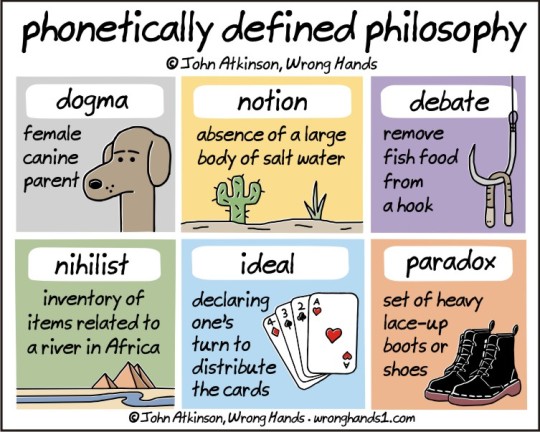#Phonics and
Explore tagged Tumblr posts
Text
I'll be honest, when I see someone complain about processed ingredients in something by saying "I can't even pronounce these ingredients!" my main thought is not 'oh no, that's so ultra-processed' but rather 'oh no, nobody taught you how to sound out long words in elementary school', which then makes it hard to take them and their point seriously.
#kinda bitchy thoughts#admittedly a lack of proper phonics reading education did fail a lot of people#so this is not a purely sarcastic thought#but 'I can't read this' is not a compelling argument for your expertise
176 notes
·
View notes
Text

#phonics#philosophy#words#wordplay#language#english#pronounciation#teaching#wronghands#webcomic#john atkinson#humor#funny
435 notes
·
View notes
Text
i have to confess that both times i read sotr i couldnt figure out how to say panache’s name
i’ve since heard it pronounced like ganache (duh, missed that) but in reading, i’d default to paan-chay, like pancho with an eyyyy.
94 notes
·
View notes
Text
deeply concerned at all the leftists on this website who think that everything is a government conspiracy to oppress the populace on purpose and not just a very predictable outcome of everyone being overworked and underpaid and not able to be an expert on Everything at once
#Come on guys we do not need Leftist Qanon#Like. Is this convenient to the people in power so they don’t put a high priority on fixing it? Yeah maybe#But whole word learning replacing phonics was not a government conspiracy to make the populace dumber
53 notes
·
View notes
Text

#omori meme#kel omori#omori kel#sunny omori#omori sunny#aubrey omori#omori aubrey#suntan omori#is she a home of the phonic??? i hope not!!!#the brainrot THE BRAINROT THE BRAINROT THE#the fog is coming#the fog is coming the fog is the fo#I DON'T HAVE ANYMORE MINERAL WATER. IM GOING TO CRY.#omori
250 notes
·
View notes
Text




@horiizonsstuff if I had a nickel for every time James and Gordon got caught in a wreck together…
#IDIOTS /affectionate#gordonxjames#ttte james#ttte gordon#ttte rocky#ttte toby#going through ‘On Track with Phonics’ book gallery page on the wiki and immediately made the connection lmfao#top example is the story ‘sad rocky’ specifically
56 notes
·
View notes
Text
I read the first few pages of Bleak House and now I'm extra upset about the post on college-level literacy because what do you mean they couldn't parse meaning from that. WHAT DO YOU MEAN they couldn't figure out he was setting a specific sort of mood for the opening of the story. WHAT DO YOU MEAN the words they didn't understand and looked up made the entire sentence structure virtually meaningless to them?
#oh we're cooked actually#a number of things are starting to make sense to me#starting with young fandom culture and broadening out to every time i've had to rephrase a sentence for gen z for the last five to ten year#BRING BACK PHONICS
49 notes
·
View notes
Text
i believe estate agents pronounce it "sploe"

61 notes
·
View notes
Note
I’m sorry, did you say an average of 60 jockeys paralysed a year?
(In reference to this post about injuries in racing jockeys: https://www.tumblr.com/elodieunderglass/773292886240428032/i-would-like-to-know-more-about-the-common)
I got this from this PBS article, but I’m not willing to stake my reputation on the sourcing at this remove, so I’ll remove that part of the post until I can research the epidemiology for myself.
https://www.pbs.org/newshour/amp/nation/jockey-suicides-bring-attention-to-stress-and-mental-health-concerns-of-the-job
#jockeyposting 🏇#it’s dinner and phonics time here and while posts with Killie don’t travel too far too fast it would be just my luck#if a post suddenly went off when I wasn’t looking#thank you for this! I am glad you asked
55 notes
·
View notes
Text

27 notes
·
View notes
Text
I now have to return to my job as a pre-school teacher and pretend I did not just spend the last two weeks reading the most grief stricken, angst filled, absolutely filthiest witchy smut.
#what do you mean I need to teach phonics and not read about middle aged witches fucking?#agathario#agatha all along
58 notes
·
View notes
Text

#history#historical#misconceptions#boer war#ottoman empire#norman conquest#wordplay#phonics#wronghands#john atkinson#webcomic#funny
196 notes
·
View notes
Note
Re. your post on AI with no sources (which I'm going to reblog; but I wanted to note this outside of the tags): I work in higher ed too, in administration. As it happens, my program is having a meeting next week, required by the office for undergrad education, to talk about "what we're going to do about Grade Inflation". *SCREAMING* I've been in this job for 24 years. I've seen past attempts to deal with grade inflation! I've seen past attempts to deal with honors inflation! They haven't figured out a solution YET. But what's especially NOT a solution is pushing it down on all of the individual depts. Because all you'll get in that case is inconsistent amounts of change (if any), and all that happens then is that those depts that DO try to address the issue find their enrollments plummeting. It absolutely HAS to be an across-the-university push all at the same time, or nothing is going to work. But yeah, sure, we'll sit around a table next week and talk about how we can grade more harshly. An idea that, as things stand, is basically asking the instructors to kill their enrollments and thus kill their student evaluations, which are examined by the administration when it comes time to renew their job appointment. I do NOT know the solution to all of this. Because there's all that on the one hand, and there's the "college as commodity" issue that you mentioned on the other hand. How do we get to a point where we can get the students to focus on the learning opportunity in front of them, rather than on the distant post-graduation job market? I just don't know, because the whole mindset is so foreign to me. And I think for a lot of teachers, too (which I am not), there's this same issue of... we weren't the ones in that mindset when we were IN college, so it's very hard to understand it now. It's not hard to understand the *fear*, or the pressure. It's just hard to understand the not-caring at all. Anyway. Just wanted to say: solidarity. This is such a big problem. AI is exacerbating it, making it worse, but the problem really was already there.
oooof yeah. Good luck and I’m really sorry about that :(
as one of the reblogs of my post said: the solution to this is UBI. Unfortunately, the solution to quite a lot of things is UBI.
Because that’s the problem, right? It’s not so much that AI exists, it’s that it makes it exponentially easier to just give up and fall into the attitude that is already pervasive anyway. I’ve never had to talk about great inflation but ugh yeah. If college is a commodity, and you need a good grades, and if college is a business, you need to keep coming and paying for those good grades… you have to revamp basically the entire economy to get out of the hole that’s been dug, both by us and for us!
Like, what, we need “college does not cost thousands of dollars” AND ALSO “4-year college is not a requirement for getting a ‘respectable’ job where you can support yourself and survive comfortably” AND ALSO “community college gets respect and support” AND ALSO “professors shouldn’t be expected to teach, research, and do administrative work all at once, all the time” AND ALSO “get rid of the publish or perish model for real” AND ALSO “teaching and public outreach are institutionally valued” AND ALSO “college professors actually get taught how to teach, like get taught education theory and pedagogy” AND ALSO “not have students’ housing or scholarship depend on their grades” AND ALSO “not have a grade school culture of teaching to the test and standardized tests that instills in you for your entire childhood that grades are everything” BUT THAT WOULD MEAN “not funding grade schools/high schools based on student test scores, just actually funding them all for real” AND ALSO “hiring more teachers” BUT THAT WOULD MEAN “making teaching at a school a task that isn’t horribly thankless and burns people out real fast” BUT THAT WOULD ALSO MEAN “making school not a miserable place to be a child” WITH A SIDE OF “make sure everyone is teaching phonics again for real so from a young age, students learn how to read well and don’t struggle with reading and writing in a way that encourages them to give up and use ChatGPT” AND ALSO “generally having a culture that values learning and knowledge rather than money”… it is all SO MUCH and it will be hard to do and also expensive so nobody with the power to fix it really wants to try that hard to do so!!
and yeah, I definitely think you’re right that because all the professors and TAs are the people who liked school enough to keep doing it forever it’s just, incredibly hard to grok the students who don’t care. But the mess of a culture we’re in makes it all so hard to challenge because it feels like we need to untangle EVERYTHING to fix ANYTHING.
UBI would be a great start though.
#asks#eregyrn-falls#academia#Okay to not be so despairy: we need to chip away at each of these problems in the way we can#Teaching phonics in grade school and giving high school students recess where they get to go outside would be a good start
42 notes
·
View notes
Text
hard work is difficult and unpleasant yes..... but nothing worth doing is ever easy
23 notes
·
View notes
Text
one of the key points that emily hanford makes in sold a story is that as a result of the politics surrounding no child left behind, reading pedagogy itself wound up regrettably politicized. the bush administration’s “reading first” initiative was intended in part to bring american classrooms up to date with what was known about the science of reading, including a “back to basics” angle that involved systemic phonics instruction; because this fell under the banner of Bush Education Policy, and also because (as is literally always the case in education) the roll-out was poorly managed, many teachers (as per hanford) rejected it.
what this means is:
(1) if you attended kindergarten through second grade after 2002 and are glad you went to school in the era of phonics, unlike these misbegotten youth, no you didn’t; as the podcast highlights, the initiative failed at scale (although she notes that some teachers in the few districts where implementation was handled with care found the professional development around it useful)
(2) if you attended kindergarten through second grade in the 90s and are glad you went to school in the era of phonics, unlike these misbegotten youth, no you didn’t; the rise of phonics as a battle in 2001 onwards indicates that it was not in fact settled practice at that point, as indeed does the resistance practicing teachers mounted to being asked to incorporate systemic phonics instruction. balanced literacy, the approach sold a story spends much of its time critiquing, is typically said to have arisen in the 90s.
(3) if you went to elementary school before the 90s, tbh you’re also on thin ice wrt these claims, because whole language, the pedagogical model to which balanced literacy is in theory a more phonics-friendly update, is based on a set of theories originating in the 60s & 70s and probably hit its peak in the 80s, with the balanced literacy of the 90s being seen as a “compromise” between whole language and a more traditional approach.
(4) the traditional approach featuring phonics doesn’t mean that it taught phonics well enough for all students to succeed. hanford early on in the podcast includes the story of an adult who never successfully learned to read in school. this person was a vietnam veteran.
remember: some kids can in fact learn to read without much instruction in phonics, or with essentially a basic overview. tbh unless you received remediation/support for a learning disability, i would not draw any conclusions from your fuzzy childhood memories and the mere fact that you can read about whether or not your school was teaching reading right. (to give one example from my fuzzy childhood memories - if your first grade teacher taught you “when two vowels go a walkin, the first one does the talking,” as mine did in 1994 or so - that was teaching phonics poorly! that’s not a rule it’s recommended to teach, because it’s not reliably true! if it was enough for you, that says more about non-classroom factors in reading success than it does about your first grade teacher, who may have been lovely in other ways.) on the other hand, teachers certainly have always existed who have been more proactive than the field at large about incorporating science into their practice (or, alternately, recalcitrant about change in ways that sometimes have benefits lmao); having lucked into one or several of those doesn’t mean you grew up in the era of phonics, because, like, there are so many fucking teachers in this country.
#posts brought to you by a reply i saw where someone said they went to high school in 2014#and they could see the difference that dropping phonics made between the grade band#no you couldn’t. not a thing.
33 notes
·
View notes
Text
I'm listening to the podcast Sold a Story and good Lord this makes me as angry as anything
#girl whose job is reading and who taught her siblings to read with phonics: THEY'RE NOT TEACHING PHONICS???????????????#i'm really curious about the science of phonics for english as a secondary language because i know that's a sticky point#but anyway. wow. this is a gem of reporting work and also has made me cuss the people behind the problem out in my car
21 notes
·
View notes